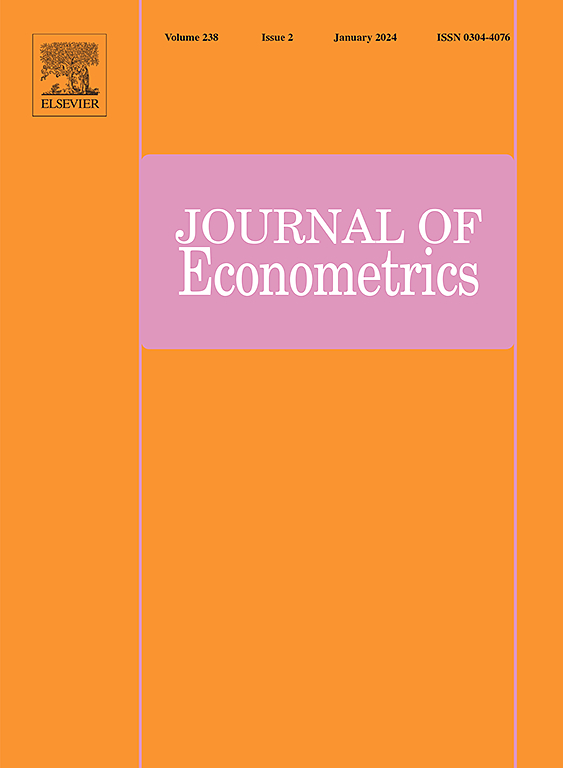功能生态推断
IF 4
3区 经济学
Q1 ECONOMICS
引用次数: 0
摘要
本文考虑了从聚合数据中观察Y|W和Z|W的条件分布,并试图在不观察同一样本中的Y和Z的情况下推断Y |z的条件分布的生态推理问题。首先,我们证明了这个问题可以转化为一个包含算子的线性方程,在适当的正则性假设下,最小二乘解是可用的。然后,我们提出使用具有最小Hilbert-Schmidt范数的最小二乘解,在我们的上下文中,它可以在结构上解释为Y和z之间具有最小依赖性的解。有趣的是,在条件变量W是离散的并且属于有限集合的情况下,例如单位/群体/城市的标签,这种最小依赖性的解具有封闭形式。在更一般的情况下,我们使用了一个正则化方案,并证明了我们提出的估计量的收敛性。对我们的程序进行了数值评价。本文章由计算机程序翻译,如有差异,请以英文原文为准。
Functional ecological inference
In this paper, we consider the problem of ecological inference when one observes the conditional distributions of and from aggregate data and attempts to infer the conditional distribution of without observing and in the same sample. First, we show that this problem can be transformed into a linear equation involving operators for which, under suitable regularity assumptions, least squares solutions are available. We then propose the use of the least squares solution with the minimum Hilbert–Schmidt norm, which, in our context, can be structurally interpreted as the solution with minimum dependence between and . Interestingly, in the case where the conditioning variable is discrete and belongs to a finite set, such as the labels of units/groups/cities, the solution of this minimal dependence has a closed form. In the more general case, we use a regularization scheme and show the convergence of our proposed estimator. A numerical evaluation of our procedure is proposed.
求助全文
通过发布文献求助,成功后即可免费获取论文全文。
去求助
来源期刊

Journal of Econometrics
社会科学-数学跨学科应用
CiteScore
8.60
自引率
1.60%
发文量
220
审稿时长
3-8 weeks
期刊介绍:
The Journal of Econometrics serves as an outlet for important, high quality, new research in both theoretical and applied econometrics. The scope of the Journal includes papers dealing with identification, estimation, testing, decision, and prediction issues encountered in economic research. Classical Bayesian statistics, and machine learning methods, are decidedly within the range of the Journal''s interests. The Annals of Econometrics is a supplement to the Journal of Econometrics.
 求助内容:
求助内容: 应助结果提醒方式:
应助结果提醒方式:


